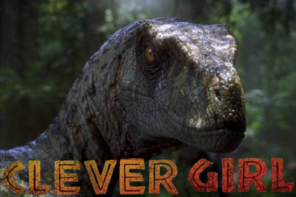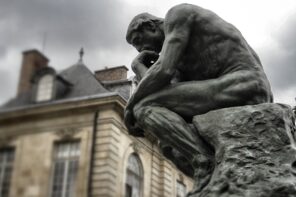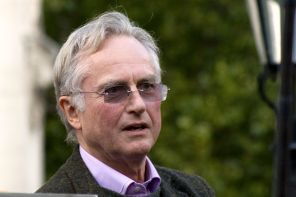Seven hundred atheists, among them atheo-luminaries Richard Dawkins and Bill Maher, descended on Burbank, California earlier this month for the Atheist Alliance International 2009 convention. The main topic? The great harm done throughout history by religion: the single most dangerous human creation. The welfare of humanity, it was argued, depends on the dismantling of religion and all of its delusions. The possibility of collaboration, of compromise, of any shared ethical commitments between theists and non-theists, was not on the table.
I was at the convention to give a talk from the perspective of African American Humanism. While there are many things I share with atheists, I disagree with this aggressive (one might even say fundamentalist) dismissal of religion and the mocking of all things religious. I am convinced that extremists (whether theists or non-theists) with their inability for critical self-reflection and critique are not the best champions of healthy life orientations. I remain hopeful that collaboration and partnership will be difficult to achieve but not impossible. I am not calling for a naïve stance marked by blindness—either to the deep dimensions of our differences, or to the great harm that theistic (and atheistic) perspectives can produce when they nurture bad ethics.
I left Burbank thinking it wise to reframe the “A” in Atheism.
Accentuate the Positive
Is victory over the doctrine of God all atheism desires? Is this victory even the best symbol of atheism’s self-understanding? (We humanists and atheists tend to be as focused on God as theists!) If so, it is a somewhat empty victory, and at its worst is reminiscent of the posture of some evangelical theists. I would hope atheists want more. But having more requires steps beyond the quick conclusion that theists are delusional.
Atheists (and as a humanist I am mindful of my role in this) need to move beyond what philosopher William R. Jones has labeled a theoretical atheism, marked by its preoccupation with rejecting the existence of God. This “atheism of the mind” is focused on belief and unbelief, on breaking the back of a delusion while enhancing an appreciation for science as the marker of our better selves. But there is another strand of atheism, one Jones labels practical or functional. This productive atheism involves more than the discrediting or lampooning of the practices of theistic faith communities. Atheism is all too often (yet not always) presented as a simple negation of things religious, the “a-” meaning, simply, “not.” Instead, atheists must more carefully present a system of ethics meant to enhance quality of life, both through scientific advancement and rigorous struggle against irrational modes of destruction such as racism, sexism, and homophobia. What is necessary is the application of practices that speak clearly to atheism’s concern for life within the context of a fragile environment.
To the extent that it is possible (and many atheists will reject this suggestion), attention should be given to a search for common ethical ground that brackets the harsher presentations of both theistic and atheistic views. I am not asking for a “can’t we all get along” rejection of debate and a suspension of aggressive wrestling over ideas. It is important to challenge beliefs as a way of safeguarding human accountability and integrity; but there must also be a push for more than destruction of all markers of religious commitment. We should continue to interrogate and critique theistic orientations, and adherents of theistic positions should continue to challenge us, lest we collapse into a fundamentalist atheism. If not, careful and self-critical attention paid to science by some atheists, for instance, could easily become scientism—a faith of its own, with figures such as Richard Dawkins serving as its prophets.
History shows that reason may alter the posture of faith-based communities, may force them to shift their language and limit their size and their socio-political reach, but it will not destroy faith. The very definition of faith should make this apparent. Atheists miscalculate the core significance of theism if they assume it is about doctrine and creeds, ritual forms and physical structures; those things most often attacked. Theism, at its core, is about the making of meaning and the establishment of stories and practices related to how and why we occupy time and space; ritual, doctrines, sacred texts and so on are only cultural manifestations of this deeper meaning. These rituals and doctrines are secondary, not primary: They are modified, they shift, they change to fit the historical-cultural context. Attacks on theism’s theological or ritual shortcomings, while correct in some regards, will not end theism.
Theism and atheism/humanism will persist, and any real gain we make toward healthy existence for our world must involve collaboration (not assimilation) and partnerships between moderates within both groups. This is not denial of difference and doesn’t require rejection of one’s chosen orientation. Rather it involves recognition that a mature approach to life rejects fundamentalism of any kind, and demands complex relationships of shared ethical commitment even when those relationships are burdened with tension.











